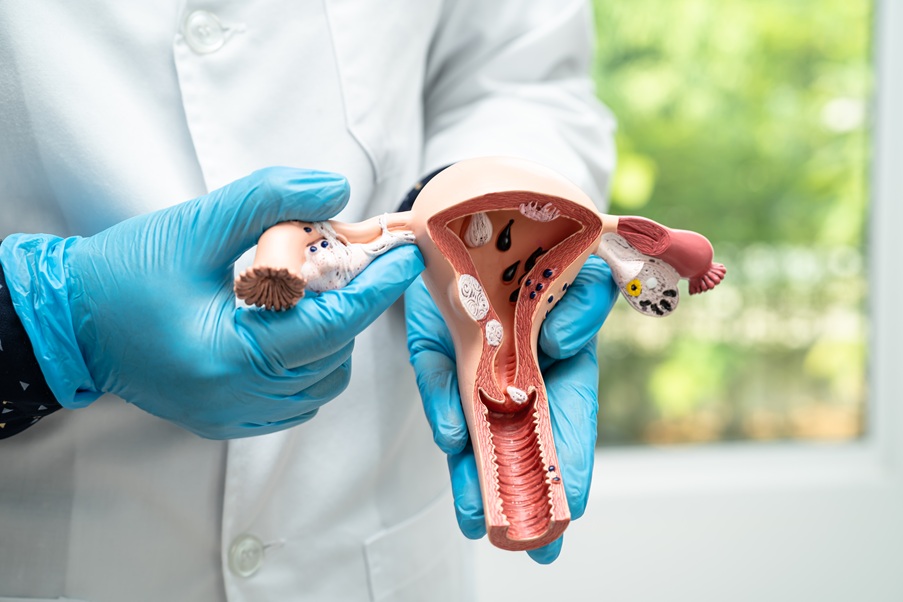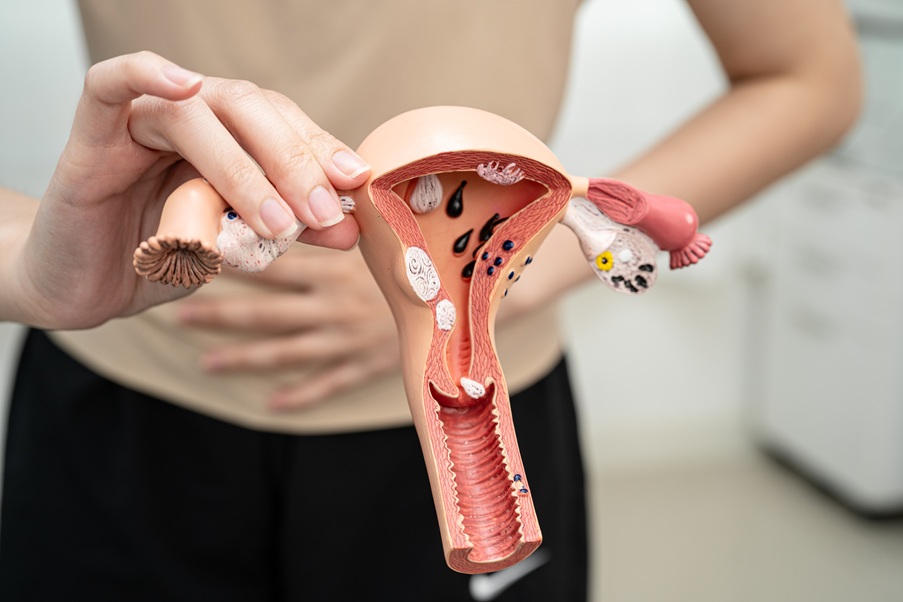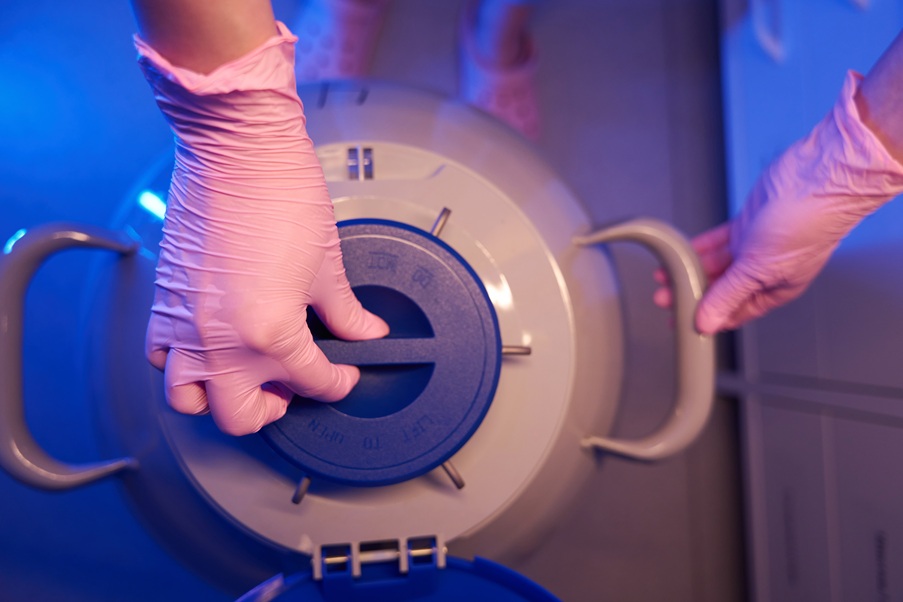blog tambre
I have ovarian cancer, can I still become a mother?

Table of contents
8 May marks International Ovarian Cancer Day, a day to raise awareness of early detection, encourage prevention and promote the importance of research.
A diagnosis of ovarian cancer raises many questions about the present and future of a woman’s life. To have these questions is completely normal. They are normally not only about the disease and its cure, but also about whether it is possible to become a mother after ovarian cancer. After all, the ovaries are the organs responsible for producing eggs and female hormones, so, if they are affected by a disease such as cancer, their function may be reduced, putting a woman’s fertility at risk.
Nevertheless, even after such a diagnosis, there are still different opportunities to achieve pregnancy after ovarian cancer.
What is ovarian cancer and what are its symptoms?
Ovarian cancer is a malignant disease in which cells that form the ovary begin to grow out of control, invading and destroying healthy tissue in the body. Although it accounts for only 3% of all female tumours, this type of cancer is currently the fourth leading cause of cancer death in women, after lung, breast and colon cancer.
Its high mortality rate is basically due to two fundamental reasons: there are no specific signs and there is no method of early diagnosis, which means that it is a cancer that is usually diagnosed late. It is therefore essential to be aware of the symptoms of ovarian cancer, as early detection can make a difference to the prognosis.

These symptoms are:
- Pelvic or abdominal pain.
- Abdominal swelling.
- Difficulty eating or quickly feeling full.
- Rapid weight loss for no apparent reason.
- Frequent need to urinate.
- Changes in bowel habits.
Ovarian cancer, how does it impact on future motherhood?
Treatment of ovarian cancer consists of complete surgical removal of the visible disease, as well as chemotherapy to try to prevent the tumour from reproducing. Ovarian cancer and its treatment are a cause of infertility, as part or all of the ovary may need to be removed, reducing the chances of pregnancy.
Ovarian cancer usually appears after menopause, although it can also occur in young women who have not yet had children and wish to do so in the near future.
In the case of older women or women who do not wish to have children, especially if the cancer is in an advanced stage, removing both ovaries and the uterus is normally considered. However, if the woman is still young and wishes to have children, depending on the severity of the disease, the most conservative surgery possible is considered. This is done in order to keep the uterus –and even an ovary, or part of it. This could make it possible to have children with a woman’s own eggs, even naturally, although to have a better chance of pregnancy, assisted reproduction is the most effective option.
Treatments to achieve pregnancy after ovarian cancer
Once the diagnosis is known, and before receiving treatment for ovarian cancer, it is advisable to consider all the options for preserving fertility as much as possible so that, once the disease is overcome, there are more options for achieving pregnancy with different assisted reproduction treatments:

1 – Ovum vitrification
Egg vitrification, also known as egg freezing, is the most effective solution to preserve and plan fertility and parenthood after ovarian cancer. Before starting surgical treatment and chemotherapy, a process of egg or embryo freezing can be carried out, which will keep the eggs intact and in perfect condition until the time to become a mother comes.
The vitrification or egg freezing technique starts with a personalised ovarian stimulation by using hormonal medication so as to obtain the highest possible number of mature eggs. When the ultrasound shows that the ovarian follicles have reached their optimum condition, ovulation is triggered in order to proceed with the ovarian puncture and obtain the eggs.
After selecting the best eggs, they are taken to vitrification. At Tambre we use Cryotop vitrification. It is a highly efficient method of cryopreservation that provides high oocyte survival, fertilisation and pregnancy rates. In this way, you can choose the most suitable time to become a mother.
This technique, combined with our laboratory’s best practices, has positioned Tambre as an international benchmark. Proof of this is the best Practice in Vitrification award , which we received from Kitazato on two consecutive occasions, during the ASEBIR Congress in 2023 and again in 2025. An endorsement of the excellence of our processes and the experience of a team that works every day to take care of the most valuable aspect: your life project.
2 – IVF with own eggs
If you have survived cancer and still have an ovary, it is possible to retrieve the eggs for IVF treatment. This IVF treatment consists of stimulating the production of quality eggs in order to fertilise them with your partner’s sperm or donor sperm in our laboratory. The embryos are then transferred directly into the uterus to promote implantation. At Tambre, we follow fully customised procedures, which allows us to achieve high success rates.
3 – IVF with oocyte donation
If we do not have your own previously frozen eggs or embryos, and it is not possible to recover eggs after treatment for ovarian cancer, we can resort to oocyte donation, that is, receiving donated eggs from another woman which, through IVF, can be fertilised with your couple’s or a donor’s sperm, which is then transferred to your uterus.
IVF egg donation treatment is the most effective assisted reproduction technique, as we use high-quality eggs from young donor women who are selected through an exclusive egg donor programme that allows us to find the ideal donor for each patient.
4 – Embryo adoption
Another option for achieving pregnancy after egg cancer is embryo adoption. It is a simpler and cheaper procedure than egg donation. It consists of using embryos donated by other couples or women who have previously undergone IVF cycles and no longer wish to have children. With embryo adoption, or adoption of embryos, we avoid the invasive procedures of IVF and waiting times. For this procedure, the only trait we need to look for is that the embryo shares certain characteristics with the future parents (phenotype, RH, etc.).
As you can see, there are several possibilities for achieving pregnancy after ovarian cancer. At Clinica Tambre we are experts in complex cases, and we can help you achieve pregnancy. If you need more information about how ovarian cancer affects your fertility or you would like to know what pregnancy options are available, do not hesitate to call us on 91 411 61 11, to make your first appointment in which we will resolve all your doubts. Our team of specialists in Advanced Reproductive Medicine will evaluate your fertility and personalise the most appropriate treatment for you.


